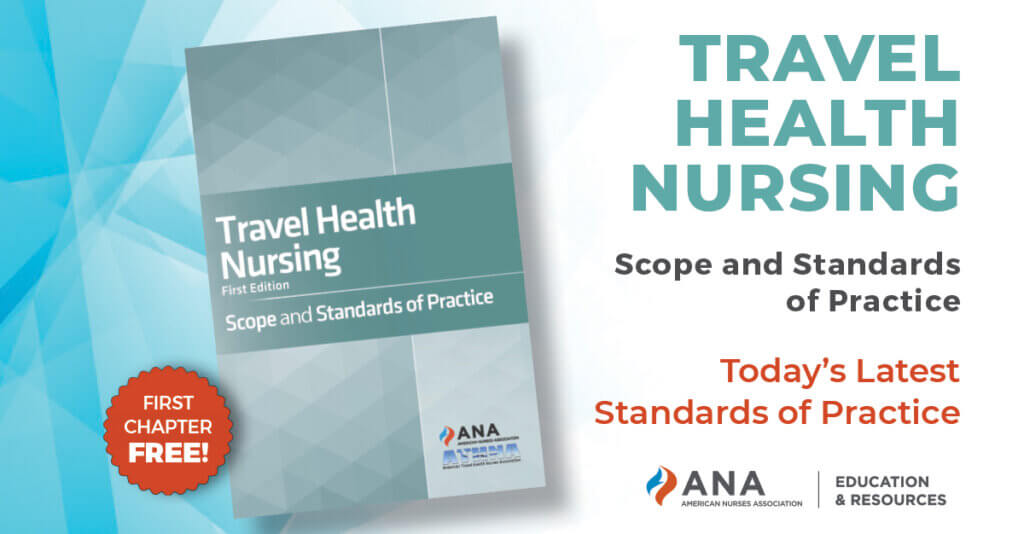The Pro’s and Con’s of Travel Health Nursing: What to know before starting
By: American Nurses Association
First, what is travel health nursing?
Basically, travel health nursing is a nursing specialty of caring for travelers before, during, and after their journey.
Here is a description lifted from the official handbook for the Travel Health Nurse:
“The travel health nursing professional, not to be mistaken for the “travel nurse,” is an official ANA recognized nursing specialty. Travel health nursing is defined as “the specialized nursing practice that advances the well-being of all travelers, both domestic and international, in all phases/stages of travel and in all clinical settings.” Travel health nurses provide travelers with pre-travel preparation, in transit support, and post- travel evaluation and management as may be needed.”
Travel health nursing grew out of the need for health consults prior to foreign travel, especially around immunization requirements and options. Today, travel health nursing has grown into a far larger scope and is a specialty in it’s own right. The American Nurses Association recognizes travel health nursing as a specialty within nursing.
What are the qualifications?
You need a valid RN license, some experience, the ability to think on your feet, solid research and synthesis skills, and a good deal of what is sometimes called “chutzpa”. Perhaps most of all, you need to be comfortable with knowing that you will never be “the” definitive expert on anything. The scope of knowledge is so vast that you will find yourself always needing to research and double check. Recommendations, health and social conditions, and options for treatment and prophylaxis change constantly, and you will need to be able to balance confidence and humility.
What can I expect to be doing as a travel health nurse?
Travel health nursing grew out of the need for travelers to be up-to-date on immunizations and to know what prophylactic medications to procure prior to foreign travel. This kind of pre-travel counseling is still a major portion of the duties of a travel health nurse. Expect to spend time researching immunization requirements for entry into destination countries, as well as prophylactic and emergency medications for endemic and epidemic diseases. As more and more people travel for medical tourism, expect to be partaking in managing more complicated health histories, not just the stereotypically young healthy fit adult traveler.
Travel nurses may also work with patients during travel. For example, as a consultant, you will be available for information, support, and advice. Or you may actually travel with your client(s), either individually or as the onsite nurse for a larger group of travelers.
Advanced Practice nurses (APRNs) practice to the full extent of their licensure in travel health nursing and can serve as the primary healthcare provider for travelers before, during, and after their journeys.
The future of travel health nursing
As international travel gets increasingly complex and health challenges are at the forefront of public awareness, demand for travel health nursing is expected to continue to grow. Both remote and onsite positions are expected to be in demand.




Sorry, the comment form is closed at this time.